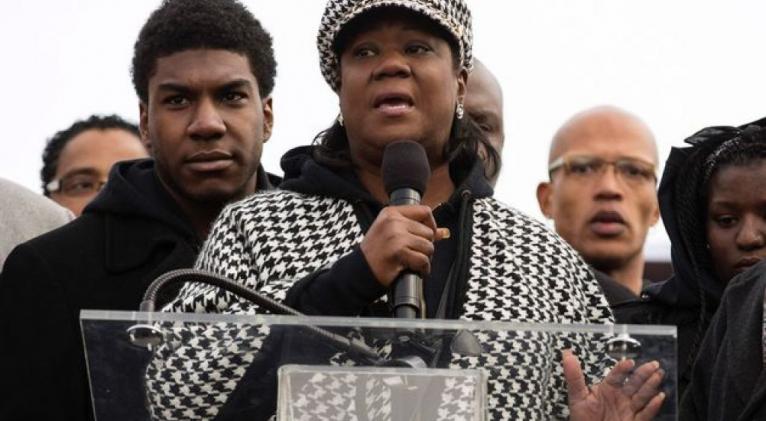US won't charge George Zimmerman in Trayvon Martin killing
especiales
US won't charge George Zimmerman in Trayvon Martin killing
Fecha de publicación:
25 February 2015
0
Imagen principal:

The department began its civil rights investigation shortly after a national furor erupted over Martin’s death in Sanford, Florida, which set off protests, demands for justice and an emotional response from President Barack Obama. The shooting was the first in a string of racially tinged cases involving the deaths of young black men that have prompted a rethinking of the nation’s criminal justice system.
Zimmerman was acquitted of second-degree murder in a state court in 2013; some jurors said they believed that he had shot Martin, 17, in self-defense.
The conclusion of the investigation came as Attorney General Eric H. Holder Jr. neared the end of his tenure. The shooting was one of several racially fraught cases that Holder said the department would finish investigating before he stepped down.
The Justice Department is also conducting two civil rights investigations into the shooting death of Michael Brown, another unarmed black teenager who was killed by a white police officer in Ferguson, Missouri, in August. In that case, violent protests erupted after the shooting. A grand jury declined to indict the officer.
Other police-involved deaths, including the choking of an unarmed man in Staten Island, New York, and the shooting of a Cleveland boy holding a realistic, airsoft-style gun, have fueled concerns about police conduct and racial profiling.
The lawyer for Martin’s family, Benjamin L. Crump, said the parents, Sybrina Fulton and Tracy Martin, were badly shaken by the news that the federal government would not bring charges. The family met with Justice Department officials in Miami on Tuesday.
“This is very painful for them; they are heartbroken,” Crump said. “But they have renewed energy to say that we are going to fight harder to make sure that this doesn’t happen to anybody else’s child.”
Fulton and Martin have become national figures and, through their foundation, are trying to help reduce violence in black and Hispanic communities and expand educational opportunities for minority students.
Since his acquittal, Zimmerman has had numerous run-ins with the law. Last month, he was arrested and charged with aggravated assault, accused of throwing a wine bottle at his girlfriend. In 2013, shortly after his acquittal, he was arrested after a heated fight with another girlfriend, but the woman asked prosecutors not to press charges.
And in 2014, the police in Lake Mary, Florida, said a driver had told officers that Zimmerman threatened him during what was described as a road rage incident.
The federal inquiry was started to pursue “an independent investigation” into the shooting after local police officials and prosecutors were slow to arrest and charge Zimmerman; they argued that Florida’s self-defense laws would make it difficult to prove a criminal case. Gov. Rick Scott then appointed a special prosecutor who eventually charged Zimmerman.
Federal investigators interviewed 75 witnesses, reviewed all the material gathered by the state of Florida and examined evidence relating to Zimmerman’s encounters with law enforcement after his acquittal, according to a statement. But none of that was enough to prove that Zimmerman, who is part Peruvian, killed Martin because of his race.
The bar for prosecuting hate crimes is high - proving negligence or recklessness is not enough - and Holder said the “standard for a federal hate crime prosecution cannot be met under the circumstances here.” Zimmerman’s former lawyer, Mark O’Mara, has said his client is not a racist, saying he has black friends and mentored two black youths.













Add new comment